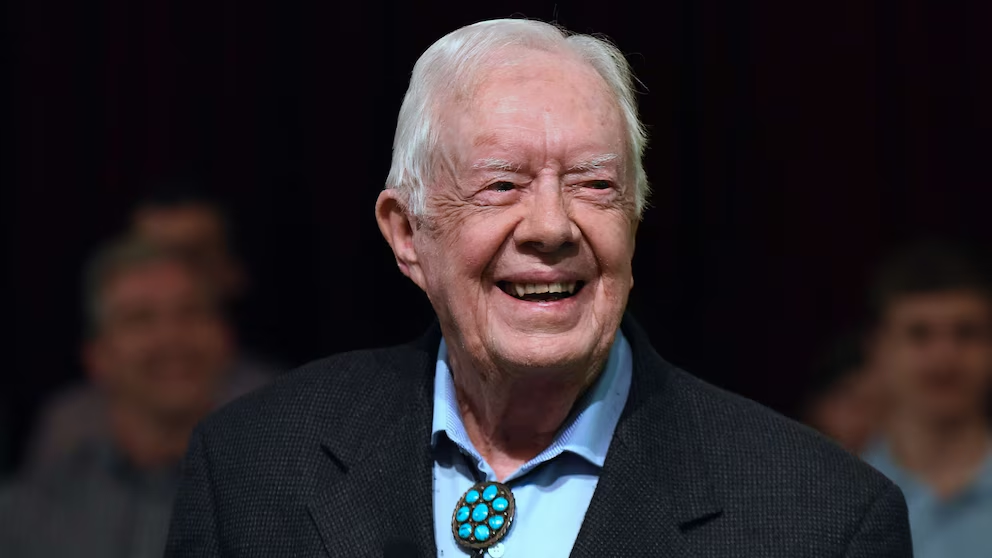AfriqueCAN
Jimmy Carter, the peanut farmer who won the presidency in the wake of the Watergate scandal and Vietnam War, endured humbling defeat after one tumultuous term and then redefined life after the White House as a global humanitarian, has died. He was 100 years old.
The longest-lived American president died on Sunday, more than a year after entering hospice care, at his home in the small town of Plains, Georgia, where he and his wife, Rosalynn, who died at 96 in November 2023, spent most of their lives, The Carter Center said.
“Our founder, former US President Jimmy Carter, passed away this afternoon in Plains, Georgia,” the center simply said in posting about Carter’s death on the social media platform X.
Businessman, Navy officer, evangelist, politician, negotiator, author, woodworker, citizen of the world — Carter forged a path that still challenges political assumptions and stands out among the 45 men who reached the nation’s highest office. The 39th president leveraged his ambition with a keen intellect, deep religious faith and prodigious work ethic, conducting diplomatic missions into his 80s and building houses for the poor well into his 90s.
“My faith demands — this is not optional — my faith demands that I do whatever I can, wherever I am, whenever I can, for as long as I can, with whatever I have to try to make a difference,” Carter once said.
A moderate Democrat, Carter entered the 1976 presidential race as a little-known Georgia governor with a broad smile, outspoken Baptist mores and technocratic plans reflecting his education as an engineer. His no-frills campaign depended on public financing, and his promise not to deceive the American people resonated after Richard Nixon’s disgrace and US defeat in southeast Asia.
“If I ever lie to you, if I ever make a misleading statement, don’t vote for me. I would not deserve to be your president,” Carter repeated before narrowly beating Republican incumbent Gerald Ford, who had lost popularity pardoning Nixon.
Carter governed amid Cold War pressures, turbulent oil markets and social upheaval over racism, women’s rights and America’s global role. His most acclaimed achievement in office was a Mideast peace deal that he brokered by keeping Egyptian President Anwar Sadat and Israeli Prime Minister Menachem Begin at the bargaining table for 13 days in 1978. That Camp David experience inspired the post-presidential center where Carter would establish so much of his legacy.
Yet Carter’s electoral coalition splintered under double-digit inflation, gasoline lines and the 444-day hostage crisis in Iran. His bleakest hour came when eight Americans died in a failed hostage rescue in April 1980, helping to ensure his landslide defeat to Republican Ronald Reagan.
Carter acknowledged in his 2020 “White House Diary” that he could be “micromanaging” and “excessively autocratic,” complicating dealings with Congress and the federal bureaucracy. He also turned a cold shoulder to Washington’s news media and lobbyists, not fully appreciating their influence on his political fortunes.
“It didn’t take us long to realize that the underestimation existed, but by that time we were not able to repair the mistake,” Carter told historians in 1982, suggesting that he had “an inherent incompatibility” with Washington insiders.
Carter insisted his overall approach was sound and that he achieved his primary objectives — to “protect our nation’s security and interests peacefully” and “enhance human rights here and abroad” — even if he fell spectacularly short of a second term.
